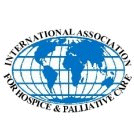IAHPC Traveling Fellow’s Report
Goma, Democratic Republic of Congo, October 2008
Goma is a community struggling to survive through years of war, disease, volcanic eruptions and poverty. I felt overwhelmed and helpless and desperately wanted to assist the staff to ease their patient’s pain. The patients at HEAL Africa hospital were cared for with compassion and concern by staff who devoted their time, skills and energy into saving and mending broken bodies, minds and souls anyway they could.
HEAL Africa’s purpose is to train leaders and promote healing in the Democratic Republic of Congo (DRC) and Africa through a wide range of programs. These include Medical education and clinical training for doctors and health care workers, programs for women victims of sexual violence, programs for HIV/AIDS sufferers, and intensive farming programs.
I am a Palliative care nurse educator and I saw an opportunity to assist HEAL Africa staff to provide palliative care for their patients. Lyn Lusi invited me to return to support and teach palliative care to doctors and nurses at the hospital and those from home based care teams.
On 9th October 2008 I arrived in Goma excited at the chance to renew friendships and partner with devoted nurses. I came with a team of 4 nurses and 1 doctor who worked at the hospital with other volunteers and HEAL staff. I met Roger Busangele who coordinates the home based care teams, and we discussed how HEAL partners with other organizations to visit patients suffering with HIV/AIDS. We planned to visit patients from 5 organisations to assess and evaluate their care. We visited 17 families in total. We were unable to visit the 6th team as they were outside of Goma in a dangerous area. The situation in north Kivu and Goma was under constant threat from rebel forces. I was encouraged that the Congolese nurses and the HEAL team were committed to their patients needs and keen to learn how to use a palliative approach to care.
The educational goals were:
- to teach the health care teams the principles of applying a palliative approach to care.
- to observe clinical practice in this cultural setting
- to contribute to this learning environment in a practical way
After 5 days of home visits I prepared the workshops. I discussed the topics with Roger and we agreed on the most suitable program. I needed to adapt my presentations to the local needs which the included palliative approach, pain and symptom management, symptom management in HIV/AIDS, assessment and care planning, and case studies. We had presentations, group discussion, question time and a case study review.
Some challenges in educating in a war torn society include:
- Access to resources – staff (many needed travel costs) medicines, diagnostic tests, food, educational resources (paper, Internet etc)
- Availability of medications – limited supplies and often the medications are costly.
- Hospitalisation – too costly, poorly resourced and understaffed. Home based care needs more support.
- Nurses strike – ongoing. Nurses are on strike because they have received no pay for many months.
- Regular power blackouts.
- Poverty – patients need adequate nutrition and housing. Not available.
- Security – staff and patients too afraid to leave their homes even if they are sick.
- Language and Translation – I needed to think and respond creatively in order to communicate effectively. My translator was very patient!
- Cultural issues – complex and delicate at times. My learning continues!

The nursing staff from the home based care teams
This experience has changed my nursing practice and challenged my world view. To relieve human suffering is everyone’s responsibility and I hope to continue advocating for those communities who struggle to have safety, adequate water and nutrition, shelter, basic health care and education.
Ms. Gaye Bishop, RN
Sydney, Australia
Email this page to a friend!
Top of Page |

